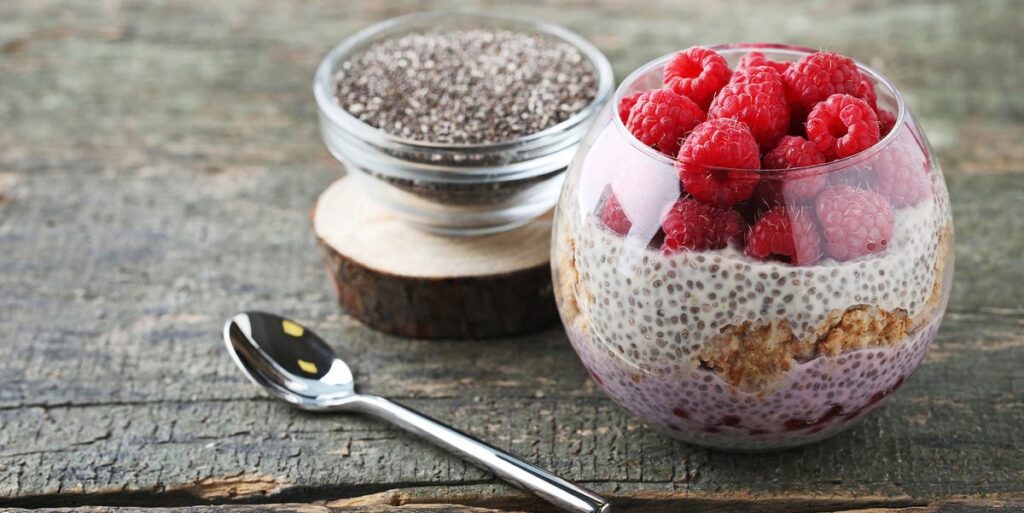Chia seeds, despite their diminutive size, are nutritional powerhouses that should be a staple in any health-conscious individual’s diet. Known for their impressive macronutrient and micronutrient profiles, these seeds can significantly enhance overall health and athletic performance, particularly for runners. If you’re looking to optimize your nutrition, adding chia seeds to your grocery list is a smart move.
Originating from the Salvia Hispanica plant, chia seeds have gained popularity as a superfood in recent years. However, their use dates back centuries. Historical texts reveal that the ancient Aztecs and Mayans revered chia for both its nutritional value and medicinal properties. The term “chia” translates to “strength” in the Mayan language, and it was believed that consuming these seeds bolstered power and endurance among warriors.
The Tarahumara tribe, renowned for their exceptional long-distance running skills, incorporated chia seeds into their diet, notably in a traditional drink called Iskiate. This water-based chia concoction is consumed to bolster endurance and provide sustained energy during arduous physical activities. Christopher McDougall’s bestselling book, Born to Run, explores the integral role chia seeds play in the Tarahumara lifestyle, highlighting their significance among this Indigenous group.
In terms of nutritional benefits, just two tablespoons of chia seeds contain fewer than 140 calories and provide nearly 5 grams of protein, over 8 grams of fat, and approximately one-third of the recommended daily dietary fiber intake. This exceptional nutritional profile makes chia seeds a valuable addition to the runner’s diet, offering numerous health benefits.
How Can Chia Seeds Benefit Runners?
A Natural Anti-Inflammatory
The antioxidants in chia seeds, particularly the phenolic compound caffeic acid, help combat inflammation that naturally occurs during intense training. These compounds neutralize harmful free radicals, effectively protecting muscle cells from oxidative damage and chronic inflammation, which can hinder recovery.
A Rich Source of Protein
Chia seeds are composed of approximately 20% protein and contain all nine essential amino acids, making them an excellent plant-based protein source. This quality is particularly beneficial for vegetarians and vegans, as it aids in muscle repair and recovery post-exercise. Incorporating chia seeds into your diet can help in managing muscle repair after strenuous workouts.
High in Dietary Fiber
These nutrient-dense seeds are also packed with both soluble and insoluble fiber. This fiber richness promotes gut health by nurturing the digestive system’s microbiome. Additionally, when chia seeds are soaked in liquid, they form a gel-like substance, which aids in prolonged satiety and can assist in regulating blood sugar levels, thereby reducing the risk of insulin resistance and type 2 diabetes. A study highlighted in the Unnes Journal of Public Health found that a chia seed-based sports drink helped maintain consistent blood glucose levels, which can be critical for athletes during endurance activities.
Rich in Omega-3 Fatty Acids
Chia seeds are a fantastic source of alpha-linolenic acid (ALA), a plant-based omega-3 fatty acid associated with a reduced risk of cardiovascular disease. Studies, such as one published in Advances in Nutrition, have shown that ALA contributes to better heart health by improving lipid profiles, including lowering blood triglycerides and increasing HDL cholesterol levels.
Loaded with Essential Vitamins and Minerals
Chia seeds offer more than just macronutrients; they also provide essential minerals like calcium and phosphorus, which are crucial for bone health. Runners are particularly at risk for stress fractures due to the high impact of their activity; thus, maintaining strong bones is imperative. Two tablespoons of chia seeds provide around 180 mg of calcium, helping in the prevention of long-term bone health issues. Additionally, chia seeds contain B vitamins, such as thiamine and niacin, which aid in energy production from food.
How to Incorporate Chia Seeds into Your Diet
To fully benefit from chia seeds, they should be soaked before consumption. When hydrated in liquids, chia seeds can swell up to ten times their weight, creating a gel-like texture that enhances satiety and nutrient absorption. They can be added to smoothies, yogurt, or consumed as a pudding, making them a versatile addition to meals. For those who prefer ground seeds, be cautious as exposure to oxygen can lead to rancidity; it’s best to grind small batches just before use.
In summary, chia seeds are not only a versatile ingredient but also an exceptional addition to any athlete’s diet. From enhancing recovery through protein to providing vital nutrients and fiber, these tiny seeds can have a significant impact on your health and performance. Whether you’re a seasoned runner or just starting out, consider adding chia seeds to your daily regimen for improved endurance and overall well-being.
